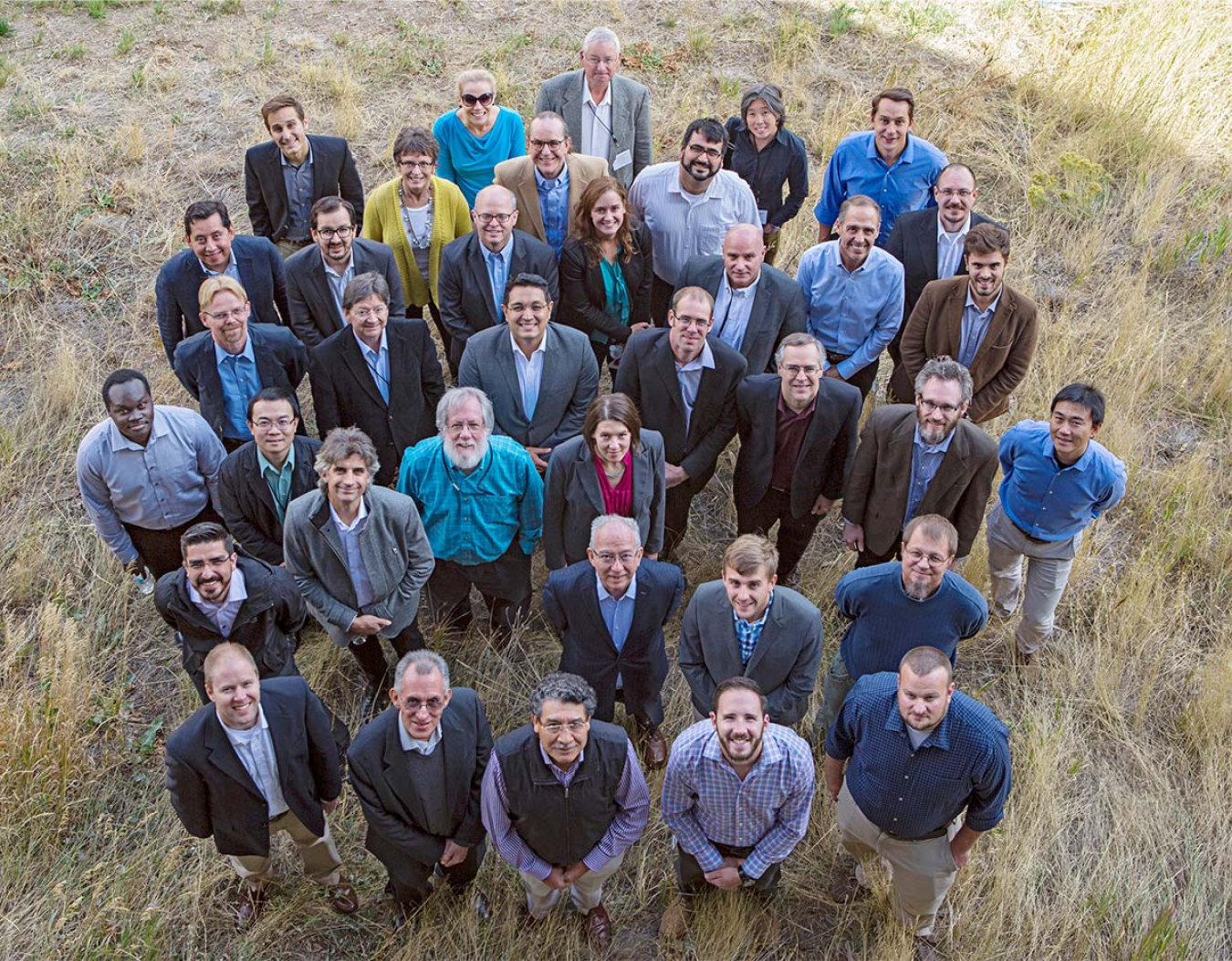U.S., Canadian, and Mexican collaboration on a new model helps industry plan an economically competitive and reliable long-term cross-border grid.
Wind Energy Technologies Office
May 20, 2019The United States, Canada, and Mexico collaborate to enable economic competitiveness and reliability

North American Renewable Integration Study project team members at a kickoff meeting at NREL in October 2016. Photo by Werner R. Slocum, NREL
For the past 3 years, researchers across the United States, Canada, and Mexico have been collaborating on the North American Renewable Integration Study (NARIS), an analysis of the pathways to modernize the North American power system through efficient planning.
To support this effort, National Renewable Energy Laboratory (NREL) has developed a new model to demonstrate reliability in a variety of future scenarios, including those with higher penetrations of meteorologically driven energy sources, such as wind and solar. The new model will help identify potential renewable energy development zones for the most cost-effective resources in all three countries and quantify potential benefits from changes in operational and planning practices. The model can also produce visualizations of high-stress periods and an impact analysis of capacity expansions. Together with extensive NREL wind, solar, and load data sets, this model will help industry plan a long-term, cross-border grid that is reliable and maintains system adequacy.
"This new model is just one step in a long-term plan to create a detailed analysis of cross-border and interregional integration that will help inform power systems planners and operators, government agencies, and regulators," said NREL Researcher Greg Brinkman.
This research will be helpful for future analyses of extreme weather events and understanding resilience, as well. Once this research is complete, the team will publish the results of the study showing how NARIS could impact future energy collaboration among the United States, Canada, and Mexico.

